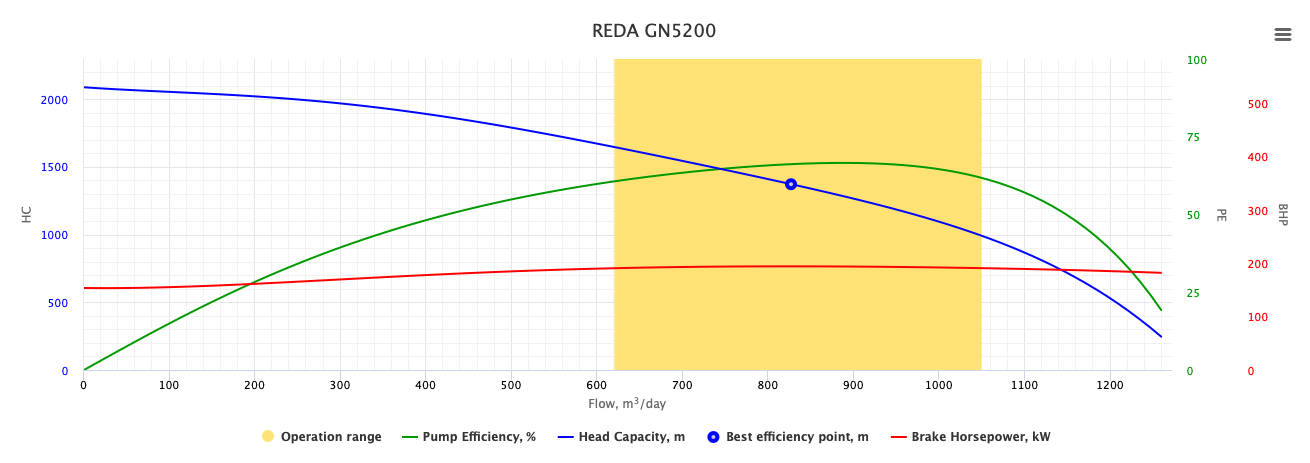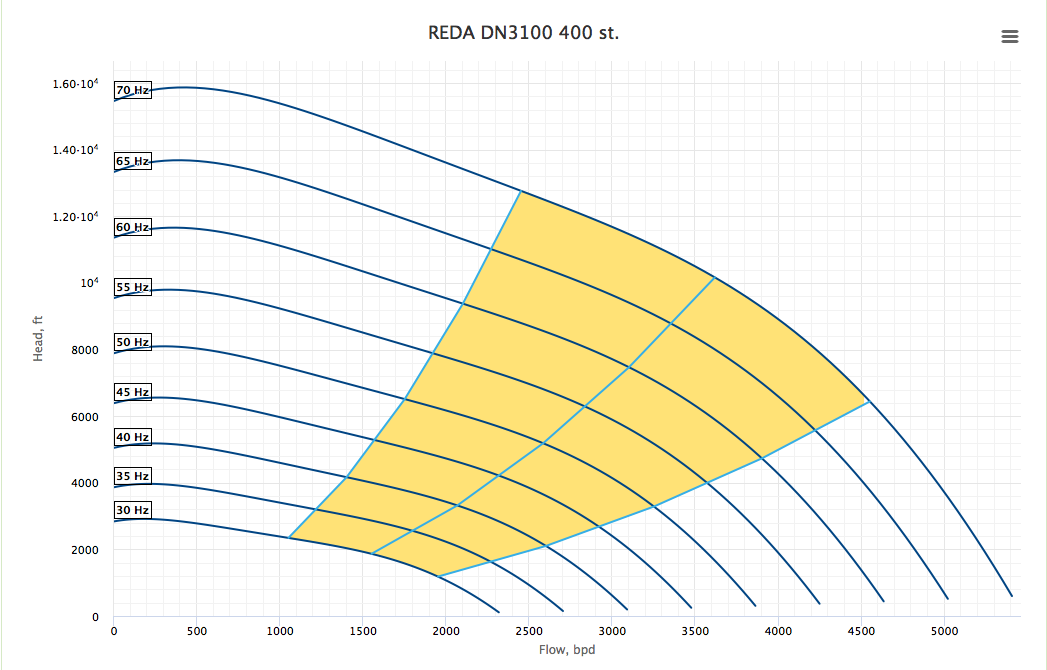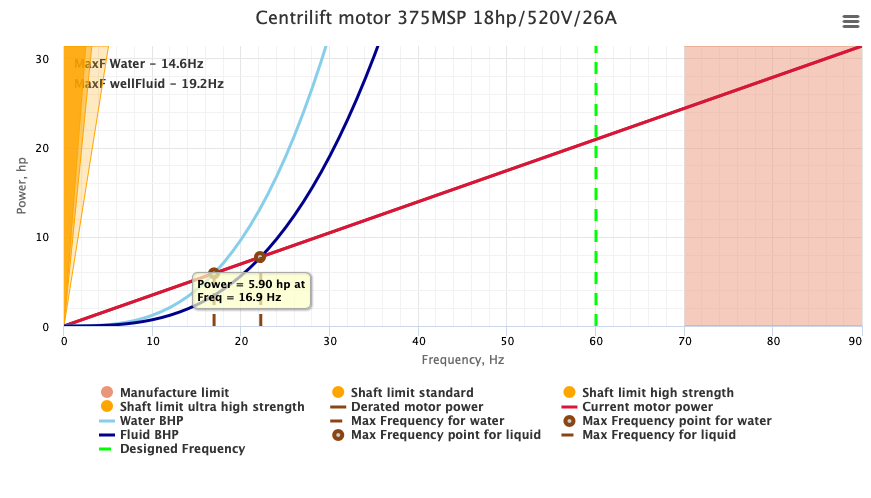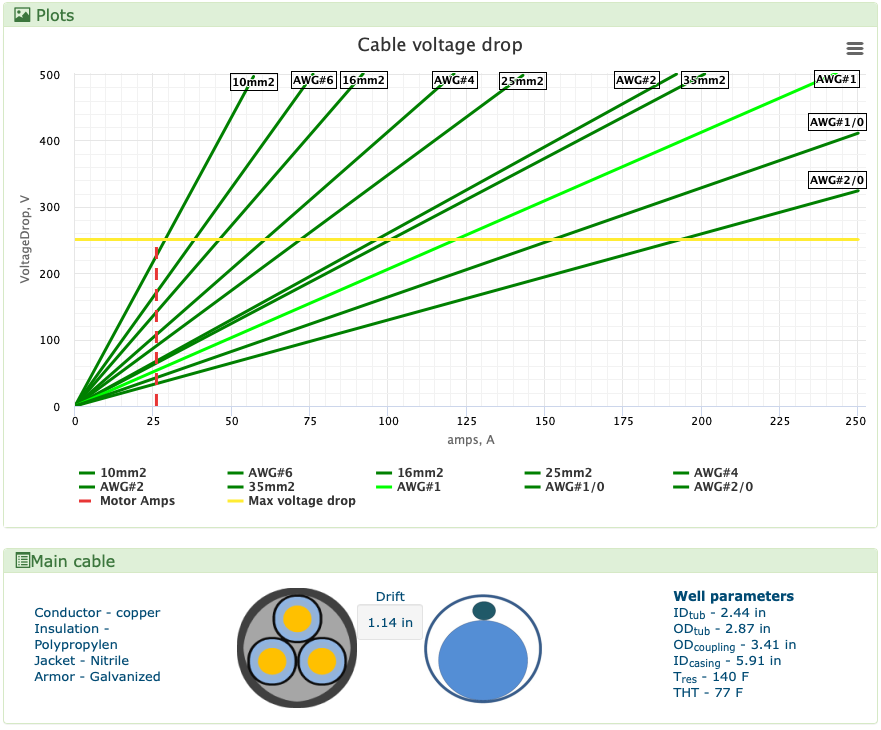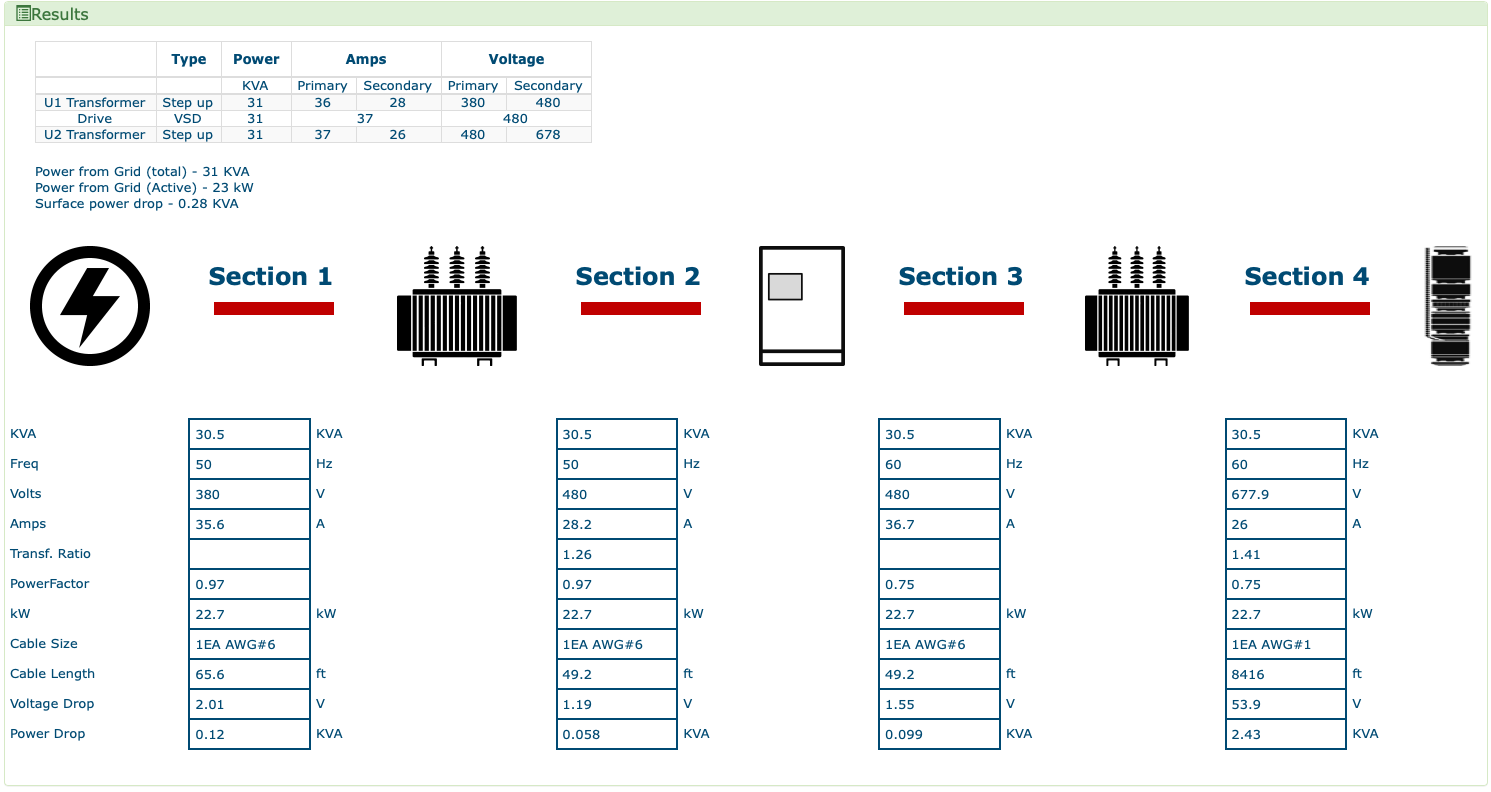Electrical Submersible Pump
Contents
Brief
Electrical Submersible Pump (ESP) is an artificial lift method to lift fluids from the wells.
Electrical Submersible Pumps are used to pump off the oil wells and produce water from the water source wells.
A typical submersible pumping unit consists of an electric motor, a seal section, an intake section, a multistage centrifugal pump, an electrical cable, a surface-installed switchboard, a junction box, and transformers [1].
ESP Performance Curves
The performance curves of ESP represent the relationship between flow rate capacity and:
- Head capacity
- Pump efficiency
- Brake Horsepower
ESP Performance Curves also show Best Efficiency Point (BEP) and ESP operating range.
ESP Performance Curves are used for ESP design and sizing.
These curves are for a fixed power cycle i.e. 50Hz, and can be changed with variable frequency controllers.
ESP Tornado chart
ESP Tornado chart is the variable-speed ESP performance chart showing the ESP performance curves at different frequencies.
ESP System
ESP Motor
ESP Cable
ESP Drive
ESP Design Software
- Pump Design - ESP pump design software available online at www.pengtools.com.
- Subpump
- Autograph PC
- Pipesim ESP design
- DesignRite
- WellFlow
- Prosper
- SelPro
- RosPump
- Автотехнолог
See also
References
- ↑ Brown, Kermit (1984). The Technology of Artificial Lift Methods. Volume 4. Production Optimization of Oil and Gas Wells by Nodal System Analysis. Tulsa, Oklahoma: PennWellBookss.
